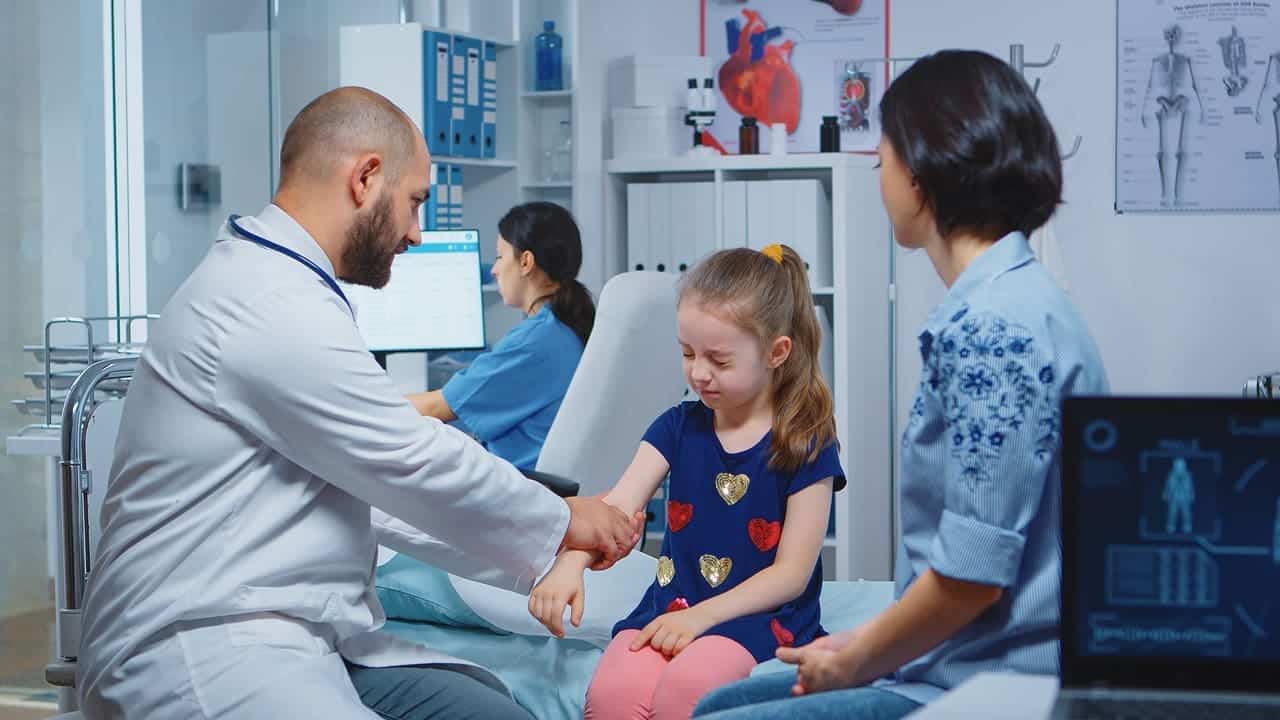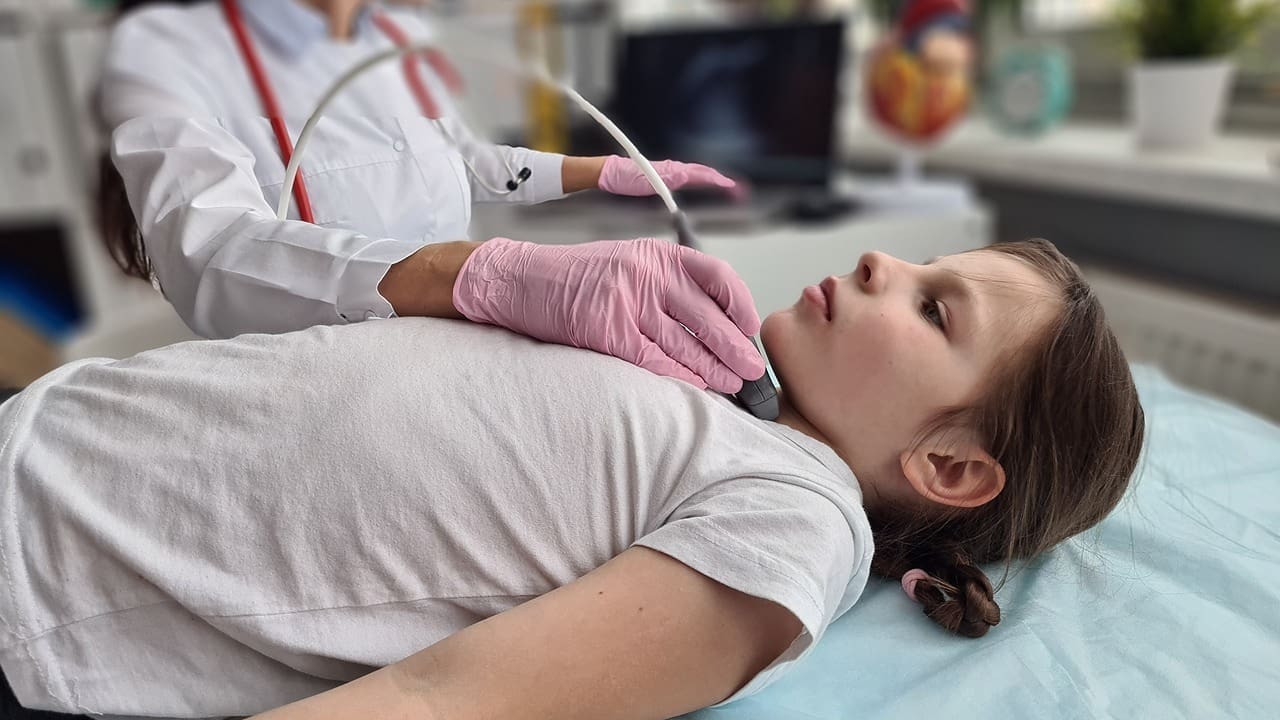Pediatric Endocrinology: Conditions, Diagnosis, and Care for Children
Pediatric endocrinology focuses on hormone problems in babies, children, and teens. Hormones play a big role in growth, energy, puberty, blood sugar, bone health, and keeping the body balanced. If a child’s hormones are not working right, you might see changes in their growth, weight, energy, mood, sleep, or development. Clinics use tests and treatments made for kids, making sure care matches their age and needs. Catching problems early and checking in regularly helps children grow well and avoid future issues.

Common reasons Families often see a pediatric endocrinologist for concerns like slow growth, early or late puberty, thyroid problems, type 1 diabetes, insulin resistance, obesity, bone or calcium issues, adrenal or pituitary conditions, or after unusual screening results. Since symptoms can be hard to spot, it’s a good idea to get checked if your child’s growth slows down, they are always tired, have trouble focusing at school, or if puberty starts much earlier or later than expected.
Endocrinology Near Me: How to Choose the Right Clinic
Many families start by searching for a pediatric endocrinology clinic nearby. Here are some things to look for when choosing where to go:
- Pediatric expertise: Select a clinic that routinely manages diabetes in children, thyroid problems, growth and puberty disorders, and metabolic concerns.
- Access and follow up: Look for convenient scheduling, prompt communication, and clear pathways for lab tests, imaging, device support, and urgent questions.
- Family centered care: Child friendly explanations, shared decision making, and written care plans empower parents and caregivers.
- Seamless coordination: Clinics that collaborate with nutrition, psychology, and diabetes education make care smoother and more effective.
- Technology support: For diabetes, it’s helpful if the clinic is familiar with continuous glucose monitors and insulin pumps. For growth or puberty concerns, having the right tests and scans for your child’s age is important.

What Is Pediatric Endocrinology? A Parent’s Guide
Pediatric endocrinology is a medical field that helps kids with hormone problems. Children need lab tests and medication doses that match their age and size, which differ from those of adults. The main goals are to help kids grow well, start puberty at the right time, feel energetic and balanced, and stay healthy as they develop.
Parents should be aware of warning signs such as growth that crosses downward on the growth chart, persistent constipation or intolerance to cold (possible hypothyroidism), unexplained weight gain or weight loss, increased thirst and urination (possible diabetes), body odor or breast development before age 8 in girls or testicular enlargement before age 9 in boys (possible early puberty), or absence of puberty by the mid teens (possible delayed puberty). Early evaluation can prevent complications and provide reassurance when variations are still within normal age limits.
Pediatric Endocrinology and Diabetes: Symptoms, Tests, and Treatment

Children with diabetes may have more thirst, need to pee often, start wetting the bed again, lose weight, feel tired, or have stomach pain or vomiting. If these symptoms are severe or your child has vomiting with stomach pain, get medical help right away. At the clinic, doctors may check blood sugar, urine, and HbA1c to see how well blood sugar is controlled. Type 1 diabetes is most common in kids, but insulin resistance and early type 2 diabetes are being seen more often, especially if there’s obesity or a family history.
Care plans teach families how to check blood sugar, eat well, stay active, and use insulin, if needed. Many families find continuous glucose monitors helpful because they make tracking easier and reduce the need for finger pricks. Insulin pumps or smart pens can help with accurate dosing and flexible routines. Regular visits with the care team help prevent both short term and long term problems. Support at school and good communication with teachers and caregivers are also important for managing diabetes.
Pediatric Endocrinology Short Stature and Growth Concerns
Growth concerns are very common. Many families visit a pediatric endocrinologist because they worry about their child’s height. Short stature means a child is much shorter than expected for their age and family background. What matters most is if a child’s growth slows down over time, not just one short measurement.
Causes can include family traits, nutrition, long term health issues, thyroid problems, or low growth hormone. Doctors will take a detailed medical history, review growth charts, do a physical exam, and order specific tests. A bone age X ray shows how mature the bones are compared to the child’s age. Blood tests can check thyroid function, screen for celiac disease, look at blood counts, and measure growth markers. Treatment depends on the reason for slow growth. Regular follow up helps make timely changes and supports a child’s self-esteem, especially during school years when height differences can be tough.
Pediatric Endocrinology Thyroid Disorders in Children

Thyroid hormones regulate energy, mood, growth, and metabolism. Hypothyroidism in children may cause fatigue, constipation, dry skin, cold intolerance, slowed growth, and difficulty concentrating. Hyperthyroidism may cause a rapid heartbeat, tremors, heat intolerance, weight loss despite good appetite, nervousness, and sleep problems. Thyroid enlargement (goiter) can occur in both conditions and may be visible as a neck swelling.
Evaluation includes thyroid stimulating hormone (TSH) and free T4 levels, and sometimes thyroid antibodies or thyroid ultrasound. Treatment is tailored to the diagnosis and age. For hypothyroidism, thyroid hormone replacement restores normal levels and supports growth and cognition. For hyperthyroidism, treatment options aim to control symptoms and correct hormone imbalance while monitoring growth and bone health. Regular monitoring helps maintain the right dose as children grow and their needs change.
Pediatric Endocrinology Puberty Disorders: Early or Delayed Puberty
When puberty starts much earlier or later than usual, it can be stressful for both kids and parents. Early puberty might show up as breast development or pubic hair in girls younger than 8, or larger testicles in boys younger than 9, along with fast growth and body odor. Delayed puberty is when there’s little or no development by the mid-teen years, or when growth slows significantly, which can affect final height.
Doctors will look at your child’s growth, family history, do a physical exam, and order specific lab tests. Sometimes they may suggest scans to learn more. Treatment focuses on addressing the cause, helping puberty occur at the right time, and ensuring your child reaches their full height. Clear explanations help families know what to expect and prepare for important milestones.
Pediatric Endocrinology Adrenal and Pituitary Conditions
The adrenal glands make hormones that help with stress, blood pressure, salt levels, and certain body changes. If there’s a problem with these glands, your child might feel tired, dizzy, crave salt, have darker skin in some areas, get acne, or have more hair growth. The pituitary gland, sometimes called the master gland, controls many hormones that affect growth, thyroid, puberty, and the adrenal glands.
Doctors may check hormone levels in the morning, do special tests, or order scans if needed. Treatment is about getting hormones back in balance and avoiding emergencies. Families get clear instructions for what to do when their child is sick, needs extra medicine, or is at school or playing sports. Regular visits help keep treatment on track as your child grows and life changes.
Pediatric Endocrinology Tests: What Parents Should Expect

Endocrine testing is designed around your child’s age and symptoms:
Blood tests: thyroid function (TSH, free T4), glucose and HbA1c, insulin, cortisol, ACTH, growth factors, sex hormones, and lipid profile.
Urine tests: assess glucose or ketones, or evaluate adrenal metabolites in specific cases.
Stimulation or suppression tests: evaluate how glands respond, such as growth hormone stimulation or ACTH stimulation, performed with careful monitoring.
Imaging: Your child might need a bone age X ray, thyroid ultrasound, or other scans. The clinic will tell you how to prepare, whether your child needs to fast, and how long the tests will take. Results are compared to what’s normal for your child’s age, and your care team will explain what they mean and what to do next. You’ll get written summaries and clear advice about each test and how it affects your child’s care.
For more information about our academic and training initiatives, visit Liv Hospital Academy
Frequently Asked Questions for Pediatric Endocrinology
What is pediatric endocrinology?
Pediatric endocrinology is a medical specialty that diagnoses and treats hormone related conditions in infants, children, and adolescents. It addresses issues affecting growth, puberty, thyroid function, metabolism, blood sugar, bone health, and adrenal and pituitary hormones using age specific evaluations and treatments.
What is pediatric endocrinology, and what conditions are treated?
Pediatric endocrinology focuses on disorders such as short stature and growth delay, early or delayed puberty, thyroid problems (hypothyroidism or hyperthyroidism), diabetes in children, insulin resistance, obesity related metabolic issues, adrenal conditions, pituitary disorders, and bone and calcium concerns.
Why pediatric endocrinology instead of a general clinic?
Children require age adjusted tests, growth chart interpretation, and weight and age based dosing. A pediatric endocrinology clinic uses child specific reference ranges and family centered plans to ensure safe, effective care for growing bodies.
What tests are commonly used in pediatric endocrinology?
Common tests include thyroid function (TSH, free T4), glucose and HbA1c, insulin levels, cortisol and ACTH, growth factors, sex hormones, lipid profile, urine ketones or glucose, bone age X ray, thyroid ultrasound, and specialized stimulation or suppression tests when needed.
What is pediatric endocrinology for diabetes care?
Pediatric endocrinology and diabetes care evaluates symptoms such as increased thirst, frequent urination, and weight loss, confirms the diagnosis with glucose and HbA1c, and provides a plan for monitoring, nutrition, physical activity, and medications. Many children use continuous glucose monitoring and personalized dosing strategies with regular follow up.
How is short stature or slowed growth evaluated?
Evaluation includes growth velocity review, family height patterns, physical exam, and tests for thyroid function, nutrition, celiac screening, and growth related markers. A bone age X ray compares skeletal maturity to age. Treatment depends on the cause and is tailored to support healthy growth.
What are the signs of thyroid disorders in children?
Hypothyroidism may cause fatigue, constipation, dry skin, cold intolerance, and slowed growth. Hyperthyroidism can lead to rapid heartbeat, tremors, heat intolerance, weight loss despite appetite, and anxiety. A pediatric endocrinology clinic confirms the diagnosis and provides age appropriate treatment and monitoring.



